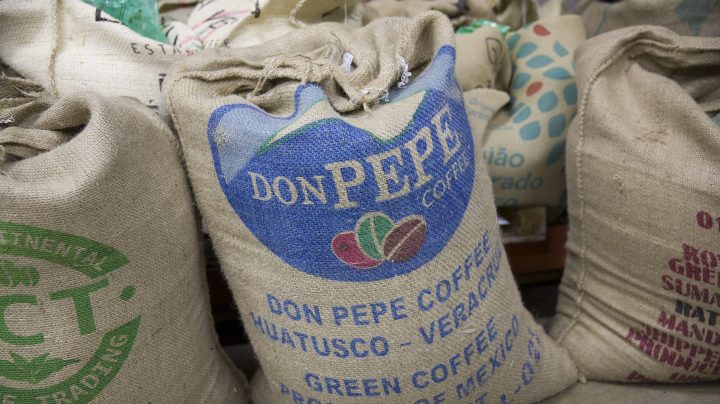
Rising commodity prices suggest more inflation is on the way
Rising commodity prices suggest more inflation is on the way

If you thought the price of food and rent have gone up, try taking a gander at commodity prices.
Arabica coffee bean futures finished 2021 more than 75% higher and are still climbing. Cotton is at a 10-year high, roughly.
The trouble with commodities is that they go into just about everything we buy. And some of them get into our minds as well.
Soybeans are up 13% year over year, according to Thomson Reuters. Aluminum’s up 54%. Anhydrous ammonia fertilizer is up over 200% over 2020’s average. A lot of this comes down to what we’ve been buying for the last two years — a lot of random stuff.
“The pandemic resulted in a substitution of goods for services,” said Craig Pirrong, a finance professor at University of Houston.
Instead of going on vacation, people built a deck, got a puppy, pet food for the puppy, planters for all their new houseplants. All that stuff requires raw materials, also known as commodities. Producers weren’t ready because at the beginning of the pandemic, they cut back.
”So when we had that cut in production capacity and then all of a sudden we get this increased demand, you put those two things together and you get price rises,” Pirrong said. Commodity prices tend to move a lot faster than prices in the rest of the economy.
”Commodity prices will be a leading indicator of the inflation rate in the U.S.,” Jian Yang, a professor finance at University of Colorado Denver, said.
According to Yang, the commodities prices signify that there is more inflation to come in 2022, though it won’t be quite as crazy as last year. One of the biggest movers of all in commodities has been energy. West Texas oil is up 61% year over year, Dutch natural gas is up 325%. And these numbers, more than any other, register with people.
”It’s almost shocking actually that all of our measures of long-term inflation expectations are very highly correlated with oil and gas prices,” said Matthew Luzzetti, chief U.S. economist at Deutsche Bank.
The prices at the pump and the cost of heating our homes with gas affects where we think inflation is going. And when people expect more inflation, more inflation can happen.
“And so I think it’s really important for thinking about how entrenched inflation pressures may become,” Luzzeti said.
Commodity prices change not just what’s in our wallets, they change our minds.
There’s a lot happening in the world. Through it all, Marketplace is here for you.
You rely on Marketplace to break down the world’s events and tell you how it affects you in a fact-based, approachable way. We rely on your financial support to keep making that possible.
Your donation today powers the independent journalism that you rely on. For just $5/month, you can help sustain Marketplace so we can keep reporting on the things that matter to you.

















